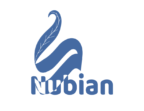Coordinated by the Nubian Center for Peace and Democracy, with the participation of the African Organization for Rights and Development and the presence of a wide range of civil society organizations, an important meeting was held yesterday, Friday, March 28, 2025, with His Excellency Ambassador Laurence Korbandi, the Special Envoy of the Intergovernmental Authority on Development (IGAD) to Sudan. The meeting took place at the Office of the African Organization in Kampala and addressed issues of war and peace in Sudan. It is considered the first of its kind for an IGAD official with civil society organizations, with a large number of civil society representatives attending both physically and online.
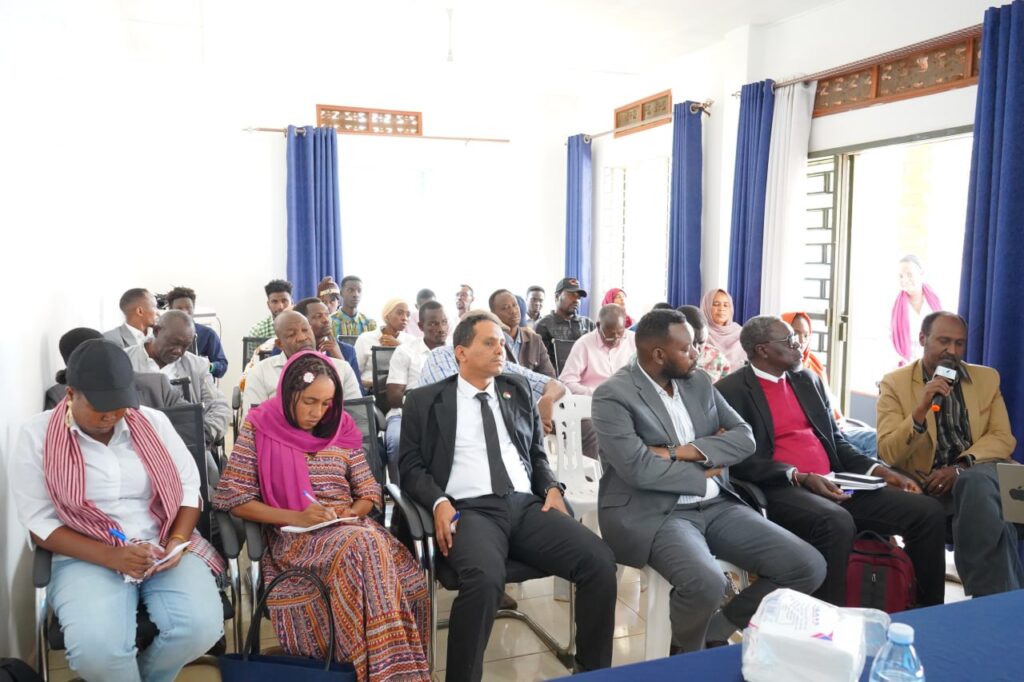
His Excellency Ambassador Korbandi expressed his pleasure in holding this important meeting with civil society organizations to discuss the current situation in Sudan, especially in light of the ongoing political and military transformations. He emphasized IGAD’s need to understand the civil society’s perspective on the peace process, its management, and issues related to stopping the war and delivering humanitarian aid to the Sudanese people. He also praised the crucial role that civil society organizations can play in Sudan’s political and humanitarian processes.
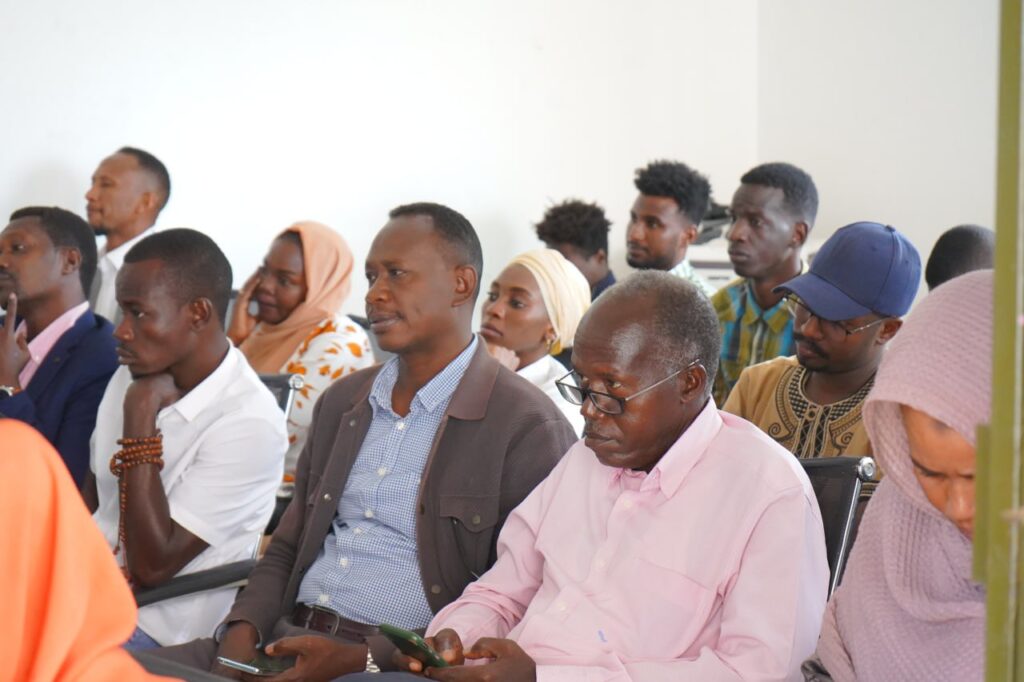
Korbandi pointed out IGAD’s desire to hear the voice of civil society and its proposals for addressing the Sudanese crisis. He explained that the key issues are stopping the war and providing humanitarian aid, emphasizing that civil society organizations are the most qualified for this role due to their independent and service-oriented nature. He also stressed the importance of civil society having a unified voice against the war, questioning its ability to achieve such consensus. Korbandi announced the establishment of a new mechanism within IGAD to support civil society organizations through training on peace and peaceful coexistence issues, affirming IGAD’s commitment to continued engagement with civil society despite the challenges it faces.
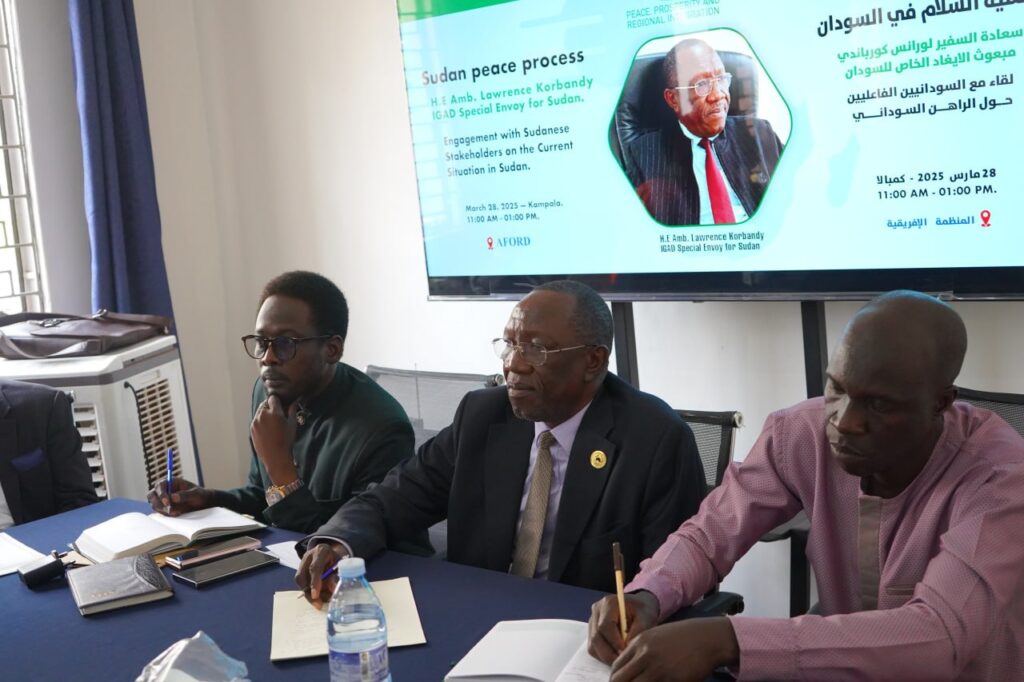
Korbandi explained that IGAD took the initiative on the second day of the outbreak of war in Sudan by holding a meeting of its heads of state, who issued a presidential statement calling on the warring parties to cease fighting and resort to negotiations. He also mentioned IGAD’s participation in the Jeddah platform and its ongoing efforts to find solutions that lead to ending the war and achieving peace in Sudan. He added that although IGAD was originally established to combat locusts, desertification, and promote development, it faces significant financial challenges due to crises affecting several of its member states. He emphasized that the Sudanese crisis is the most severe on the continent, alongside the crises in South Sudan, Somalia, Ethiopia, and Eritrea.

Korbandi affirmed that IGAD opposes any separatist tendencies and supports Sudan’s unity, referring to the African Union’s legal position, which does not recognize any parallel government in Sudan. However, he clarified that this stance does not mean recognizing the current government.
On their part, Sudanese civil society organizations welcomed IGAD’s special envoy to Sudan and expressed their appreciation for holding this meeting, as it is the first of its kind for Sudanese civil society organizations in Uganda with an IGAD official since the outbreak of the war. Despite the initiative being late, they considered it a positive step, particularly given the complexities faced by civil society organizations. They explained that the war has significantly affected their activities and initiatives, making their suffering no less than that of the Sudanese people. Many of these organizations have been displaced and now face the same challenges as refugees, limiting their ability to operate. They expressed their hope that IGAD would take these circumstances into account and work towards providing the necessary support to these organizations, whether in terms of funding, technical assistance, or regional facilitation to enable them to fulfill their role in achieving peace and stability in Sudan.
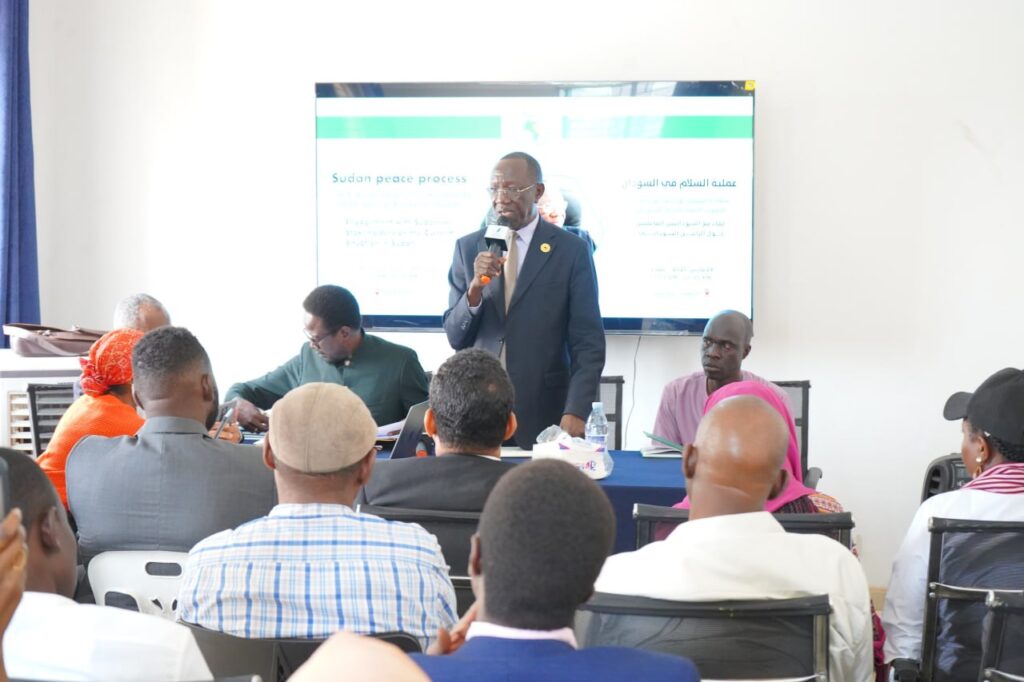
The organizations also reaffirmed their commitment to the African Union resolutions adopted by the UN Security Council and supported by the European Union and other international entities. They pointed out that there are attempts to evade these decisions and impose a de facto situation that contradicts them. They emphasized the necessity for IGAD to adhere to these resolutions and not recognize any political legitimacy since the coup of October 25, 2021. They called for civil society organizations to be included in IGAD’s initiatives seeking solutions to the Sudanese crisis.
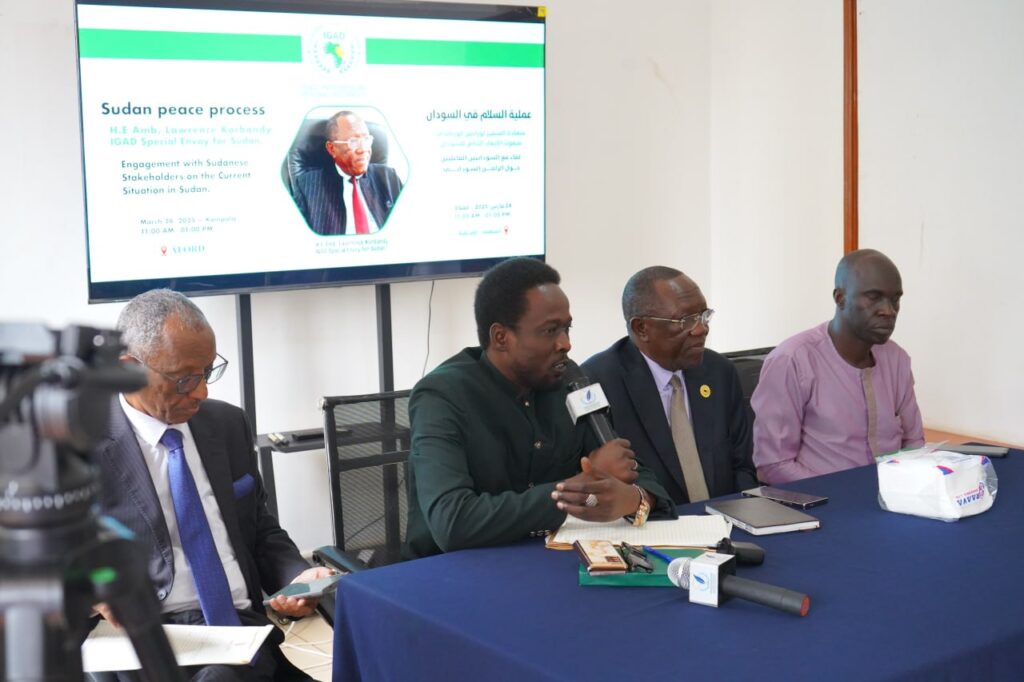
The organizations stated that their primary goal is to stop the war and achieve peace. They stressed that any peace process based on political deals and compromises at the expense of the fundamental rights of the Sudanese people will not lead to lasting peace but rather to a temporary truce that will soon collapse, reproducing violence in a more complex form. They urged IGAD to place the demands of the Sudanese people for freedom, peace, and justice at the core of its agenda and to implement the African agenda without external interference.
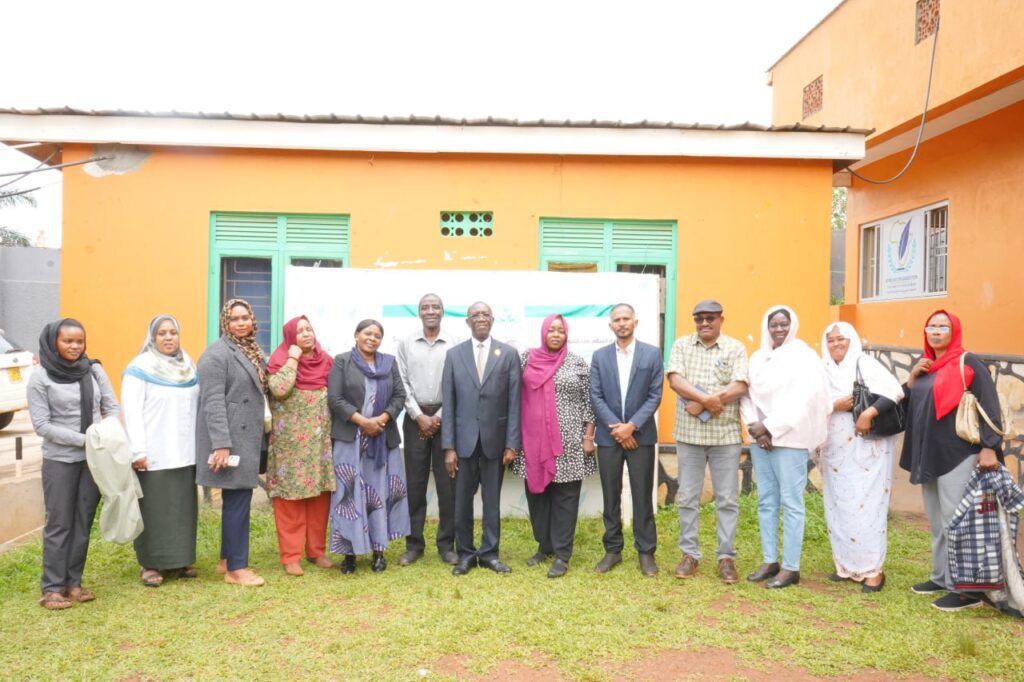
Additionally, the organizations called on IGAD to exert the necessary pressure to open safe humanitarian corridors for aid delivery and to work on providing the needed support, especially after the suspension of activities by the United States Agency for International Development (USAID), which has significantly impacted large segments of the Sudanese population. They emphasized that the process of stopping the war should be carried out through negotiations, with the participation of all Sudanese in the political process, except for the dissolved National Congress Party regime, in accordance with IGAD’s principles of peaceful solutions.
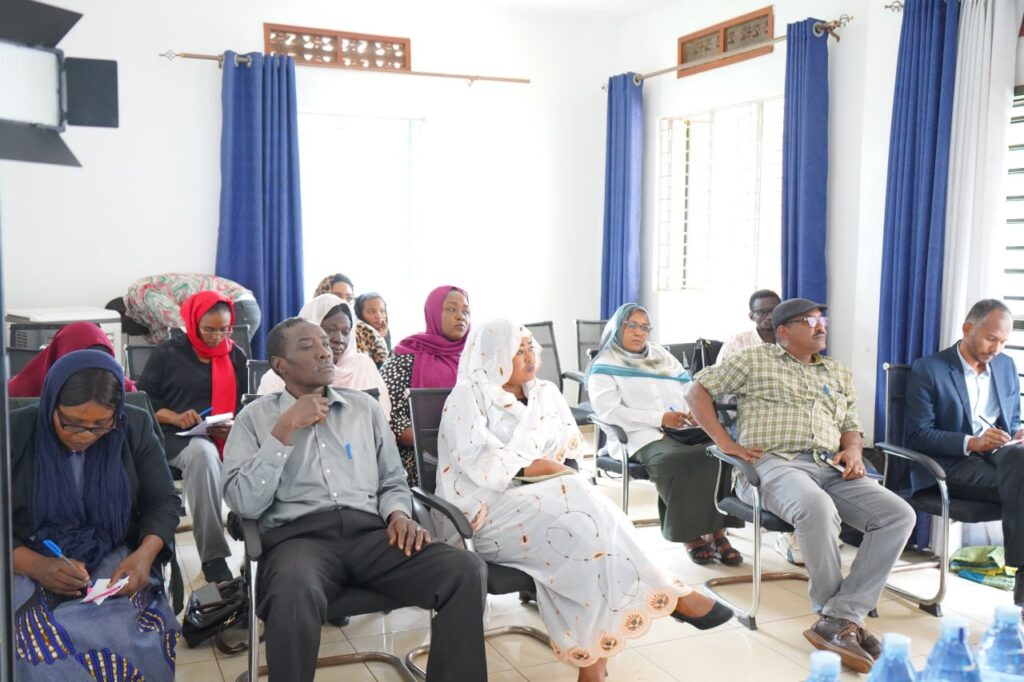
The organizations highlighted that civil society rejects war and racist rhetoric but faces challenges in being represented within initiatives aimed at stopping the war and achieving peace in Sudan, even though its involvement would enhance the chances of successful negotiations. They affirmed that civil society organizations are capable of unifying their voice and pushing to stop the war, citing their issuance of several joint statements on the situation in Sudan. They also called on IGAD to visit refugee camps in Uganda to assess their conditions and contribute to alleviating their suffering, particularly regarding the challenges faced by students in continuing their education, ensuring that they can pursue their academic progress despite the difficult circumstances.
Kampala – March 29, 2025
